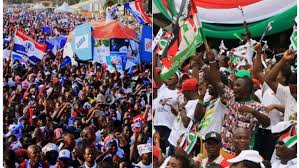Ghana, a country nestled in West Africa, has become a symbol of political stability and democratic governance on the African continent. Since gaining independence from British colonial rule in 1957, Ghana has experienced a significant evolution in its political landscape. Today, it stands as a beacon of hope and a role model for many nations aspiring to establish democratic systems. This blog explores the history, milestones, and current state of Ghana’s political scene, shedding light on what makes it unique and influential.
A Rich Political History
Ghana’s journey towards political stability began with its fight for independence. On March 6, 1957, Ghana, under the leadership of Dr. Kwame Nkrumah, became the first sub-Saharan African country to achieve independence from colonial rule. This achievement marked the start of a new era, inspiring other African nations to pursue self-governance.
However, the post-independence period was not without challenges. Ghana experienced several military coups between 1966 and 1981, which disrupted the democratic process. These years were marked by political unrest and economic difficulties. Despite these setbacks, the resilience of the Ghanaian people laid the foundation for a return to democracy in 1992 with the establishment of the Fourth Republic.
Democratic Governance in the Fourth Republic
Since the adoption of a new constitution in 1992, Ghana has made remarkable strides in solidifying its democratic principles. Regular elections have been held, with peaceful transitions of power becoming a hallmark of the nation’s politics. This achievement sets Ghana apart in a region often plagued by electoral violence and political instability.
The two dominant political parties, the New Patriotic Party (NPP) and the National Democratic Congress (NDC), have alternated in power through free and fair elections. This political rivalry has fostered a competitive environment, encouraging leaders to prioritize development to win public approval. According to Freedom House, Ghana remains one of Africa’s freest countries in terms of political rights and civil liberties.
Key Milestones in Ghana’s Political Landscape
- 1992 Constitution: The return to civilian rule in 1992 marked the beginning of the Fourth Republic. The constitution guarantees fundamental human rights, freedom of speech, and a multi-party system.
- Peaceful Elections: Ghana has conducted eight successful presidential elections since 1992, with peaceful power transitions being a testament to its mature political system.
- Decentralization: The country’s political system emphasizes local governance, enabling citizens to participate actively in decision-making at the grassroots level.
Challenges and Opportunities
While Ghana’s political system is commendable, it faces challenges such as corruption, unemployment, and regional inequalities. These issues occasionally strain public trust in political institutions. Additionally, the increasing cost of elections and political campaigns poses a threat to equitable participation.
However, opportunities abound for further strengthening the political system. The use of technology in elections, such as biometric voter registration, has improved transparency. Continued collaboration with international bodies like the United Nations and regional organizations can help Ghana address its challenges effectively.
Ghana’s Role in Regional Stability
Ghana’s political stability has enabled it to play a crucial role in promoting peace and security in West Africa. The country is a key member of the Economic Community of West African States (ECOWAS) and has contributed significantly to peacekeeping missions across the continent. Ghana’s diplomatic efforts often focus on conflict resolution and fostering regional integration.
Conclusion
Ghana’s political landscape is a testament to the resilience and determination of its people. From the tumultuous years of coups to the establishment of a thriving democracy, Ghana’s journey is one of inspiration. As it continues to navigate the complexities of modern governance, Ghana remains a shining example of what is possible when citizens and leaders prioritize democracy and development.
For more insights on Ghana’s vibrant culture, hospitality, and attractions, visit Hospitality GH. Explore Ghana’s tourism and cultural heritage through reliable sources like BBC News and World Bank.
